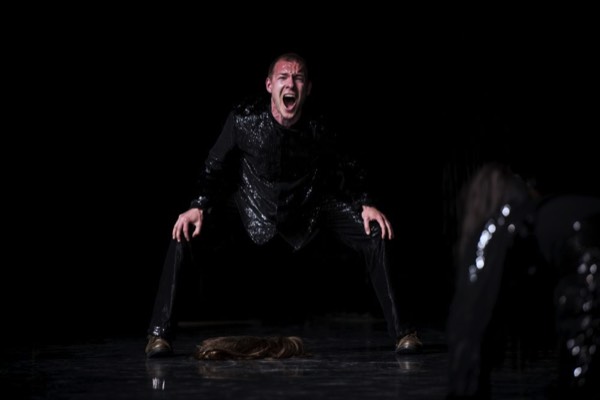Cast
Choreographers: Mia Habib*, Marcelo Evelin**
Costum design : Indrani Balgobin* & Marcelo Evelin**
Lighting design: Ingeborg Staxrud Olerud
Sound design/music: Gunnar Innvær* & Sho Takiguchi**
Dancers: Caroline Eckly, Guro Rimeslåtten, Núria Navarra Vilasaló, Sara Enrich Bertran, Irene Vesterhus Theisen, Miryam Garcia Mariblanca**, Ole Martin Meland, Christopher Flinder Petersen, Mathias Stoltenberg, Timothy Bartlett, Hugo Marmelada, Dawid Lorenc, Harald Beharie, Jack Lorentzen
*only Gjallarhorn
**only The Who of Things
About Carte Blanche - The Norwegian National Company of Contemporary Dance
Established in Bergen in 1989 and with its home base in Studio Bergen, the company tours both in Norway and internationally throughout the year. The ensemble consists of 12- 15 dancers of many nationalities around the wold, particularly known for their strong stage presence, high technical abilities and their individual creativity. Furthermore, Carte Blanche has a technical- and an administration department of 14 people in total. New programmes are created every season and the older ones re-staged. The Company has previously worked with Norwegian and internationally renowned choreographers, and woks with artists that has a critical eye on the society and that manages to express this through the dance. By allowing the dancers to exploit the privileges a publicly owned company gives, Carte Blanche enables the artists the possibility to grow. This way Carte Blanche creates an exciting and unique repertoire of high quality, underpinning the company’s goal to be a forerunner of innovation, presentation and development of contemporary dance in Norway and abroad.
Carte Blanche AS is owned and funded by the Ministry of Culture, Hordaland County Council and the City of Bergen.
www.carteblanche.no



